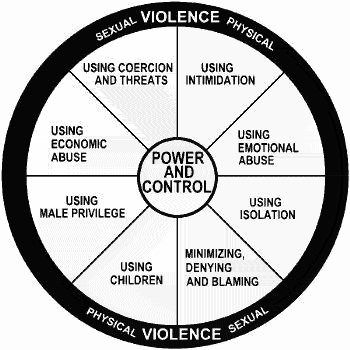I love it when people ask me questions regarding the Bible
and theology. It forces me into research mode and I am always blessed by what I
learn. Today, I was asked about Matthew chapter 18. Indeed, it is intense!
Quick Review: In chapter 18, Matthew tells the story of the disciples
arguing about who is the greatest and Jesus calling them out. He pulls aside a
child and uses said child as an object lesson.
“whoever takes the lowly position of this child is the greatest in the kingdom of heaven.”
Then Jesus amps it up a bit and issues a warning to those
who would cause a child to sin.
“But if anyone causes one of these little ones who believe in me to sin, it would be better for him to have a large millstone hung around his neck and to be drowned in the depths of the sea.”
Just in case it wasn’t clear how serious Jesus is about this
topic, He ties it up with,
“If your hand or your foot causes you to stumble, cut it off and throw it away. It is better for you to enter life maimed or crippled than to have two hands or two feet and be thrown into eternal fire. 9 And if your eye causes you to stumble, gouge it out and throw it away. It is better for you to enter life with one eye than to have two eyes and be thrown into the fire of hell.”
Dang!
My first question was, “Why does Jesus transition from ‘the
least of these’ to ‘cutting off your foot is better than sinning with it’?” As
any good theologian would, I looked to see if the other Gospel writers recorded
these words. Sure enough, versions of this story are also recorded in Mark and
Luke. Do they all follow the same pattern and include all parts of this
teaching?
Mark is close. Most of the pieces are there but an
additional story (if they are not against us, they are for us) is sandwiched in
between.
Luke includes only the first part in a grouping of stories. He
also includes the “if they are not against us, they are for us” teaching.
The one thing all three Gospel reports have in common is the
timing of this teaching. This conversation happened when they stopped for a
breather in Capernaum. A very
significant event had occurred just a few days before. While Peter, James, and John
were hanging out with Jesus on the Mount of Transfiguration, the other
disciples tried – unsuccessfully – to provide deliverance for a man who had
been strongly demonized since he was a young boy.
You can imagine, after years of effective ministry, the disciples were confused when they could not cast out the spirit. Then Jesus showed up with Peter, James, and John and did what they could not. It is not a surprise that this incident led to a discussion about who is the greatest.
You can imagine, after years of effective ministry, the disciples were confused when they could not cast out the spirit. Then Jesus showed up with Peter, James, and John and did what they could not. It is not a surprise that this incident led to a discussion about who is the greatest.
Recognizing that the intense teaching in Matthew 18
follows on the heels of this deliverance story brought me to a new revelation.
Taken as a whole, I believe Jesus is specifically addressing abuse here. Possibly child abuse, but likely abuse against any of His children.
For those of you familiar with deliverance work, how many
children have you encountered (or even heard of) who were this severely demonized without having been a victim of some
form of abuse? I know of none. And, whether the disciples realized it or not, I
don’t think this detail was lost on Jesus. I think His heart was broken over
one who had been tormented at such a young age.
While the disciples were busy worrying about who was the greatest, Jesus was mourning the reality of abuse in this world.
The crux of the Cycle of Abuse is power and control.

Jesus addressed this cycle
brilliantly. He turned the abuse cycle on its head by using a child to
illustrate how status is achieved in the kingdom of Heaven. Whereas the Cycle
of Abuse makes others “low” in order to make the abuser feel powerful, Kingdom
Power is gained when we make ourselves “low”.
Just in case current or potential abusers are tempted to minimize
this teaching, Jesus ups the ante. If they continue causing harm, they should be
forcefully stopped (drowning with a millstone around one’s neck), or the body
part that causes them to “stumble” should be cut off.
I am not suggesting that we go out and starting drowning
abusers or cutting of body parts. Indeed, our job is to find the power to
forgive them (release them from our own judgement and trust God to follow
through with His discipline).
I am suggesting that God is not ignoring the abuse so many
have suffered. Through Jesus words, He acknowledged it must happen in this
world but did not condone it, “Such things must come, but woe
to the person through whom they come!”
Jesus did not, nor does He now, take abuse lightly.
No comments:
Post a Comment